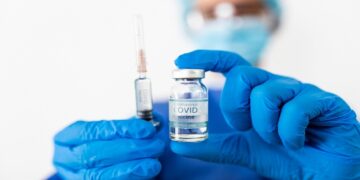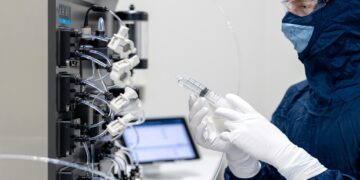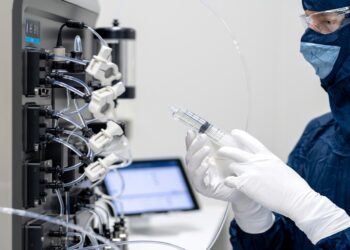Neurocrine Biosciences, Inc. (NASDAQ: NBIX) today announced its financial results for the quarter ended June 30, 2014. For the second quarter of 2014, the Company reported a net loss of $13.4 million, or $0.18 loss per share, compared to a net loss of $12.2 million, or $0.18 loss per share, for the same period in 2013. For the six months ended June 30, 2014, the Company reported a net loss of $25.2 million, or $0.35 loss per share, as compared to net loss of $24.3 million, or $0.36 loss per share, for the first half of last year.
The Company’s balance sheet at June 30, 2014 reflected total assets of $269.5 million, including cash, cash equivalents, investments and receivables of $261.5 million.
“We are very pleased with our recent interactions with the FDA concerning our VMAT2 inhibitor NBI-98854 and the path forward to an NDA filing in tardive dyskinesia,” said Kevin Gorman, Ph.D., President and Chief Executive Officer of Neurocrine Biosciences. “Based on the results of the End-of-Phase II meeting, we will conduct a single placebo-controlled Phase III trial (Kinect 3). We look forward to initiating the Kinect 3 pivotal trial later this year.”
Research and development expenses were $10.2 million during the second quarter of 2014 compared to $10.5 million for the same period in 2013. For the six months ended June 30, 2014, research and development expenses were $18.7 million, compared to $20.8 million for the same period last year. This decrease was due to lower external clinical development expense related to the Company’s VMAT2 inhibitor, NBI-98854, which substantially completed Phase II development in late 2013 and is currently in preparation for Phase III development. This decrease was offset by higher research and development personnel costs primarily related to higher share-based compensation expense.
General and administrative expenses increased from $3.4 million for the second quarter of 2013 to $4.2 million for the second quarter of 2014. For the six months ended June 30, 2014 general and administrative expenses were $8.4 million, compared to $6.8 million for the first half of 2013. The increase in general and administrative expense is primarily due to higher share-based compensation expense.
Pipeline Highlights
VMAT2 Update
The Company recently held an End-of-Phase II meeting with the FDA for its VMAT2 inhibitor, NBI-98854. The FDA reviewed the current data package and clinical development plan for NBI-98854 and commented on the overall proposal for Phase III development to support the registration of NBI-98854 in the United States as a treatment for tardive dyskinesia. Based on the results of this meeting and the related minutes, the Company will conduct a single placebo-controlled Phase III study of NBI-98854, the Kinect 3 study. The Kinect 3 study, along with the previous efficacy studies of NBI-98854, will complete the placebo-controlled clinical efficacy evaluation of NBI-98854 in tardive dyskinesia. The primary endpoint in the Kinect 3 study will be the mean change from baseline in the Abnormal Involuntary Movement Scale (AIMS) as assessed by blinded central raters. The Kinect 3 study will include approximately 240 subjects randomized to either placebo, once daily 40mg of NBI-98854 or once daily 80mg of NBI-98854 for 6 weeks of placebo-controlled dosing followed by an extension of active dosing through Week 48. The Company also intends to conduct a separate one-year open-label safety study of NBI-98854 to support the anticipated 2016 filing of a New Drug Application in tardive dyskinesia.
The Company is also expecting to submit an Investigational New Drug application for NBI-98854 in Tourette syndrome later this month and plans to commence the clinical program in Tourette syndrome patients this year.
Elagolix Update
AbbVie is currently conducting the Violet Petal Study, a Phase III study of elagolix for endometriosis. The study is a 24-week, multinational, randomized, double-blind, placebo-controlled study designed to evaluate the safety and efficacy of elagolix in 875 women, age 18 to 49, with moderate to severe endometriosis-associated pain. Approximately 160 sites in the United States, Puerto Rico and Canada are conducting this study which completed patient recruitment and randomization during the second quarter.
AbbVie is also conducting the second Phase III study of elagolix for endometriosis, the Solstice Study. This study is similar in design to the Violet Petal Study and will assess 788 women, age 18 to 49, with moderate to severe endometriosis-associated pain at more than 200 sites globally.
Elagolix is also being studied for utilization in uterine fibroids. AbbVie is conducting a Phase IIb clinical trial evaluating the change in uterine blood loss of 520 women, age 18-51, with heavy uterine bleeding due to uterine fibroids.
Conference Call and Webcast Tomorrow at 8:00AM Eastern Time
Neurocrine will hold a live conference call and webcast tomorrow at 8:00 a.m. Eastern Time (5:00 a.m. Pacific Time). Participants can access the live conference call by dialing 866-952-1907 (US) or 785-424-1826 (International) using the conference ID: NBIX. The call can also be accessed via the webcast through the Company’s website at http://www.neurocrine.com.
If you are unable to attend the webcast and would like further information on this announcement please contact the Investor Relations Department at Neurocrine Biosciences at ir@neurocrine.com. A replay of the conference call will be available approximately one hour after the conclusion of the call by dialing 800-839-2459 (US) or 402-220-7218 (International) using the conference ID: NBIX. The call will be archived for one month.
Neurocrine Biosciences, Inc. discovers and develops innovative and life-changing pharmaceuticals, in diseases with high unmet medical needs, through its novel R&D platform, focused on neurological and endocrine based diseases and disorders. The Company’s two lead late-stage clinical programs are elagolix, a gonadotropin-releasing hormone antagonist for women’s health that is partnered with AbbVie Inc., and a wholly owned vesicular monoamine transporter 2 inhibitor for the treatment of movement disorders. Neurocrine intends to maintain certain commercial rights to its VMAT2 inhibitor for evolution into a fully-integrated pharmaceutical company.
Neurocrine Biosciences, Inc. news releases are available through the Company’s website via the internet at http://www.neurocrine.com.

















